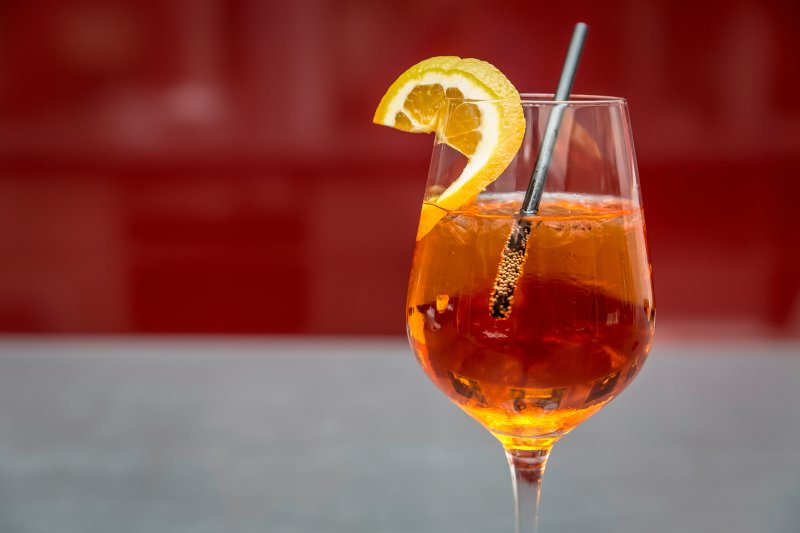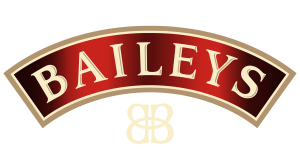Filter Search
Show available only
Categories
Price
Select all
Clear all
$0 - $10
$10 - $50
$50 - $100
$100 - $500
$500 & above
Filter Search
Show available only
Categories
Price
Select all
Clear all
$0 - $10
$10 - $50
$50 - $100
$100 - $500
$500 & above
Product is not availabe in this category, please select other category
ALL ABOUT LIQUEUR
The terms liqueur and liquor get confused often since they sound so similar, but their differences make them easy to tell apart. Liquors don’t taste sweet despite being produced with sugar (rum, tequila, gin, etc.) and are also not viscous liquids. Liqueur, on the other hand, refers to a thick, syrupy alcoholic beverage produced by distilling spirits from fruit preparation and other flavoring agents, which tastes significantly sweeter than most other types of alcohol due to its added sugar content. Liqueurs come served neat or mixed into cocktails, as after-dinner drinks, or as a shot before or after a meal. They compliment meals nicely and bring sweet, new flavors into the mix. Brewers typically flavored liqueurs with herbs, spices, fruits, creams or nuts to give them an added level of complexity.

History
Liqueur's history dates back to the thirteenth century, when an alchemist by the name Catalan Arnold de Vila Nova wrote down his recipes for aquae vitae, the water of life. He and other monks and alchemists experimented with various spirits, herbs, fruits and spices to create soothing drinks for medicinal purposes. The drink gets its name from the latin word liquefacere, meaning to melt or dissolve. The latin origin describes the process of letting those spices and herbs dissolve into brandy or whiskeys, which are often the base of liqueurs. By the fourteenth century, liqueurs became popular in Italy and France and were mostly produced by monastic orders and alchemists. Commercially, it gained popularity in the sixteenth century, when distilleries in the Netherlands and Germany began creating it on larger scales, and the drink gained traction worldwide. Today's modern versions evolved from these recipes but still carry on some traditional traditions by using natural ingredients that provide complex flavors to spice up any occasion!
How Liqueur is Made
Liqueurs typically derive from either grain alcohol or brandy (sometimes both) that has been infused with various flavors. The process begins by macerating (steeping) the ingredients in ethanol for several days until it takes on the level of flavors desired before filtering out any solids that may remain. Then the liqueur is either bottled directly or further diluted with additional ethanol and/or water before being sweetened with sugar syrup. Finally, the finished product is aged in oak barrels for anywhere between several months up to several years before it is ready to be enjoyed.
Types of
- Amaretto - Named in Italy for its lightly bitter taste, amaretto joins the root word, amare (bitter) with the suffix ette (little). This professional's liqueur of choice derives from apricot kernels, giving it an almond flavor. It can be savored on ice or straight up, and even used to flavor cocktails. Modern distillation methods reduce the bitter flavor, producing the smooth taste of almonds.
- Baileys Irish Cream - This creamy drink made with Irish whiskey, cream, chocolate syrup and vanilla extract boasts a smooth texture that perfectly complements an Irish coffee and tastes equally amazing on the rocks.
- Grand Marnier - Made by blending premium cognac with bitter oranges from Haiti and the Caribbean Islands before being sweetened with sugar syrup, Grand Marnier’s rich history follows the same recipe used for over 140 years. They utilize around 400 growers and distillers to blend this decadent drink. Its unique flavor profile makes it perfect for adding complexity to both classic and modern cocktails.
- Jagermeister - Known worldwide for its unique flavor, Jagermeister blends together 56 unique herbs, spices, and fruits to bring you a liqueur that stands out from other liquors on the market today. The infamous liquorice flavor stands alone as a key ingredient in the "Jager bomb", which helped propel it into mainstream culture, and it mixes well into many other unique cocktails as well!
WHAT DOES LIQUEUR TASTE LIKE?
Depending on derivatives used in the production, liqueurs taste quite different from type to type. Regardless, this sumptuous treat takes your taste buds on an exciting journey. From sweet and creamy, to dry and zesty - there's something for everyone. Whether you are sipping it as an after-dinner drink, or incorporating it into delicious desserts or cocktails – liqueur provides unparalleled flavor experiences.
.png)
How to Drink Liqueur
Enjoying a liqueur can be an extremely varied experience, depending on the type of drink and desired temperature. For example, Limoncello and Jagermeister most commonly come served while freezing cold, but other types may offer a delightful warm punch when diluted in hot water. Regardless, enjoying a liqueur requires careful consideration regarding temperature as well as individual taste and flavor profile, which can help determine just how much ice or heat will enhance its nuances. By understanding these two elements you’ll be able to better appreciate each drink for its unique characteristics, so you can truly savor every sip you take!
Popular Liqueur Brands
Liquor Split offers an array of popular liqueur brands, sure to please wine connoisseurs and experts alike. We carry many popular liqueur brands available for purchase on the website, whether you're looking for something sweet or something smooth, we have it all! We tailored a guide to our most popular liqueurs, and narrowed it down to some delicious choices you shouldn’t miss out on.
- Grand Marnier - Crafted by blending premium cognac with bitter oranges, known as “Curacao” oranges, from Haiti and the Caribbean Islands before being sweetened with sugar syrup, Grand Marnier’s rich history follows the same recipe used for over 140 years. They utilize around 400 growers and distillers to blend this decadent drink. Its unique flavor profile lets it seamlessly blend and add complexity to both classic and modern cocktails, making it ideal as an after dinner drink or an accompaniment to desserts like crepes or ice cream.
- Bailey's Irish Cream - Baileys popularity skyrocketed amidst liqueurs since its debut in 1974 due to its unique flavor profile consisting of Irish whiskey, cream, cocoa extract and sugar syrup. This creamy concoction perfectly compliments hot chocolate or coffee, and can be substituted for milk in recipes like tiramisu or cheesecake for an added depth of flavor. Baileys also enhances cocktails such as White Russians and Irish coffees for a touch of sweetness with every sip!
- Kahlua - A Mexican coffee liqueur with a rich flavor profile that pairs perfectly with coffee or chocolate based desserts such as tiramisu or mud pie, Kahlua’s creamy and soft flavors make it a wonderful choice. Since the 1936s, this coffee based liqueur grew to overwhelming popularity worldwide for its versatility. Whether you enjoy it on the rocks, in your coffee, or mixed into cocktails like White Russians, Espresso Martinis, Mojitos, and more, Kahlua definitely deserves its spot in coffee lovers hearts!
- Disaronno - A popular Italian almond flavored amaretto liqueur made from a blend of apricot kernel oil, burnt sugar, and alcohol, with a sweet and nutty flavor that makes it a versatile ingredient for cocktails and desserts. Its distinctive bottle shape and label design have made it a recognizable and iconic brand.
- RumChata - A creamy and smooth liqueur made from Caribbean rum, dairy cream, cinnamon, vanilla, and other secret spices, with a taste that resembles a blend of horchata and rum. It is often enjoyed on its own over ice or used as a unique ingredient in cocktails and coffee drinks.
LIQUORSPLIT’S FAVORITE LIQUEURS




Please select your delivery location for us to get the order deliver faster.
Home
Cart
Profile
Location
